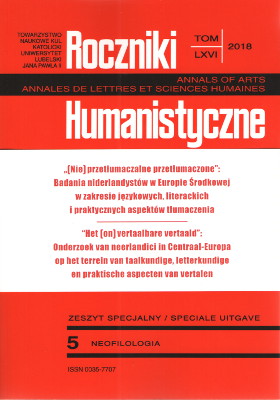Grenzen van de (on)vertaalbaarheid van de nationale rechtsterminologie in context van de Europese harmonisatietendensen
Boundaries of (un)translatibility of national legal terminology in the context of European harmonization tendencies
Author(s): Markéta ŠtefkováSubject(s): Language and Literature Studies, Foreign languages learning, Translation Studies
Published by: Towarzystwo Naukowe KUL & Katolicki Uniwersytet Lubelski Jana Pawła II
Keywords: legal translation; institutional translation; legal terminology; harmonization; European Union
Summary/Abstract: Full equivalence between legal concepts from different legal systems is difficult to achieve in legal translation. Legal concepts in one legal system are not easy to transfer to another legal system, a process which is similar to the complexity of translating culture-bound concepts in general. Interpretation, partial equivalence, description equivalence, functional equivalent are frequent strategies applied by legal translators in order to overcome the challenges in translating legal concepts.In this article, we will discuss the boundaries of the (un)translatability of legal concepts from the perspective of the growing internationalization of law within the EU. On the basis of examples, we will illustrate the adoption of harmonized supranational legal concepts into national legislation. Next, we will deal with the problem of translating via a third language. Finally, we will summarize some tendencies in legal translation as a result of the process.
Journal: Roczniki Humanistyczne
- Issue Year: 66/2018
- Issue No: 5S
- Page Range: 39-48
- Page Count: 10
- Language: Dutch

